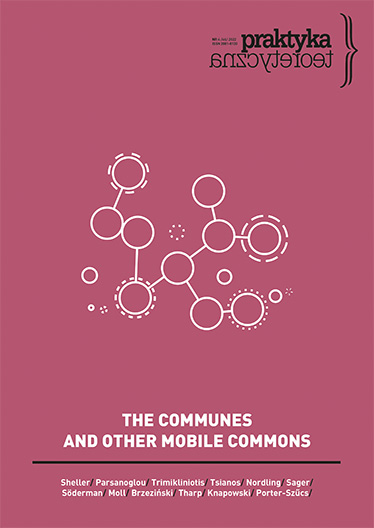

Articles

The article was written as an intervention piece in the midst of the massive escape of war refugees to Poland during the first four weeks of the war in Ukraine (24 February-24 March 2022). It aims to map and discuss the condition of grassroots hospitality (and inhospitality) in Poland between Autumn 2021 and Spring 2022. It was a time of shifting context in terms of policies: from the state of exception, migrant push-backs, and walling the border with Belarus, to the policy of solidarity with war refugees, legitimized humanitarianism and open border with Ukraine. In the course of half a year, the frames of bottom-up hospitality on Eastern borders of Poland changed entirely and abruptly. When a couple of thousands of migrants from the Middle East and beyond were camping in the border zone between Belarus and Poland, unable to claim asylum in the EU, practices of solidarity from the bottom up were barely tolerated by Polish state, if not criminalized and condemned. In these realities, structures of support remained an informal, fugitive, and underground network. But with the Russian attack on Ukraine on 24th February 2022, Poland opened its border for the unprecedented arrival of over two million people (during first month of the war) and bottom-up solidarity became a massive response of Polish society, which started to organize shelters, transportation, food and medicines. The same politicians and media which were fighting hospitality to migrants — in terms of ‘crimes of solidarity’ — on the border with Belarus, this time welcomed it with enthusiasm and support. The article proposes to view the nascent rise of grassroots hospitality with Ukrainian migrants in terms of ‘mobile commoning’: precarious, makeshift and autonomous practices of solidarity with people on the move. Mobile commoning is considered here as potential basis for a different migration policy in the EU. At the same time, the Polish case is analyzed as an instructive study of the limits of political universalism which are constructed at and by the borders.